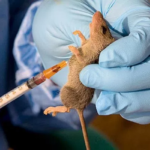Nigeria is poised to save millions of dollars in foreign exchange following the international accreditation and recognition of the Nigeria National Accreditation System, a development that now allows Nigerian export test results and quality certificates to be accepted in over 140 countries.
The milestone, announced in Abuja, is being hailed as a major breakthrough that will reduce compliance costs for exporters, eliminate the need for foreign retesting, and enhance the global competitiveness of Nigerian products.
The achievement follows NINAS securing international recognition under the African Accreditation Cooperation Mutual Recognition Arrangement, as well as from the International Laboratory Accreditation Cooperation and the International Accreditation Forum.
Previously, many Nigerian manufacturers and food exporters had to send samples to European countries for costly conformity assessments, depleting foreign exchange reserves and slowing the export process.
With the global approval, Nigerian laboratories, inspection bodies, and certification bodies accredited by NINAS can now issue certificates that are recognized worldwide.
Chairman and Chief Executive of the National Quality Council (NQC), Osita Aboloma, described the development as a “major victory for Nigeria’s economy” and a boost to President Bola Tinubu’s economic diversification agenda.
He noted that the new status will end the practice of exporters spending millions of naira and dollars to obtain duplicate assessments in countries like Norway and the Netherlands simply to meet international standards.
According to Aboloma, the recognition will lower costs, remove delays, and open opportunities for thousands of micro, small, and medium enterprises (MSMEs) seeking access to foreign markets.
He added that the breakthrough is the culmination of years of reforms under the Nigerian National Quality Policy, aimed at building a globally aligned system encompassing standardisation, metrology, accreditation, and market surveillance.











